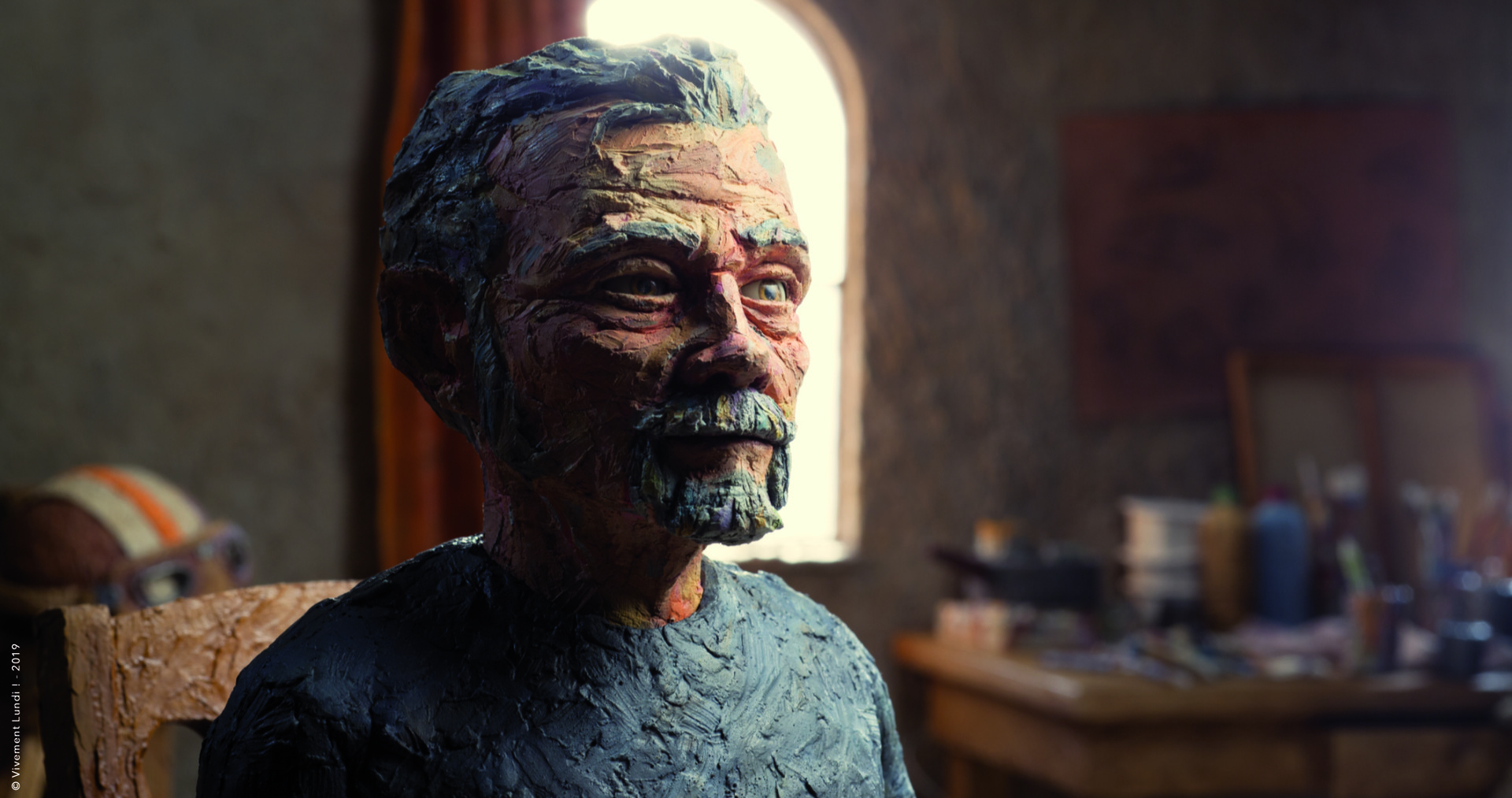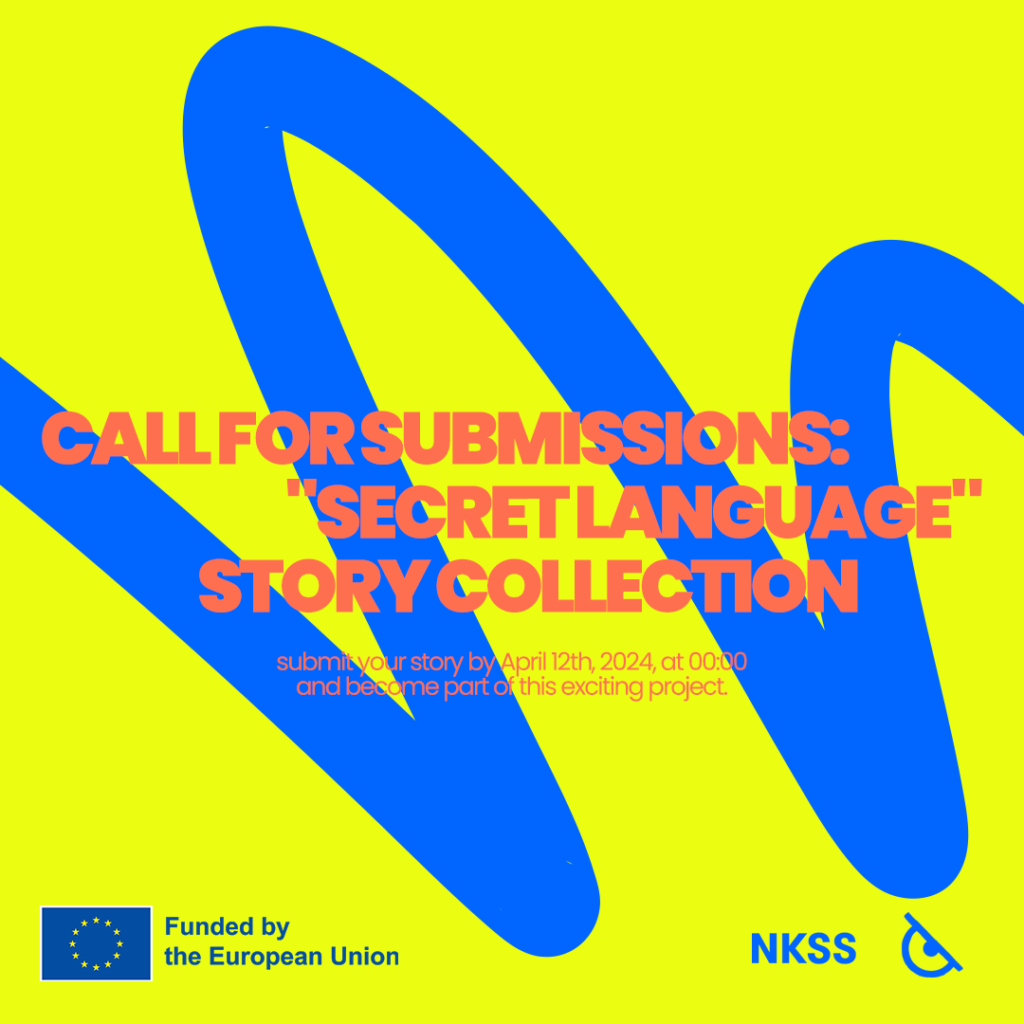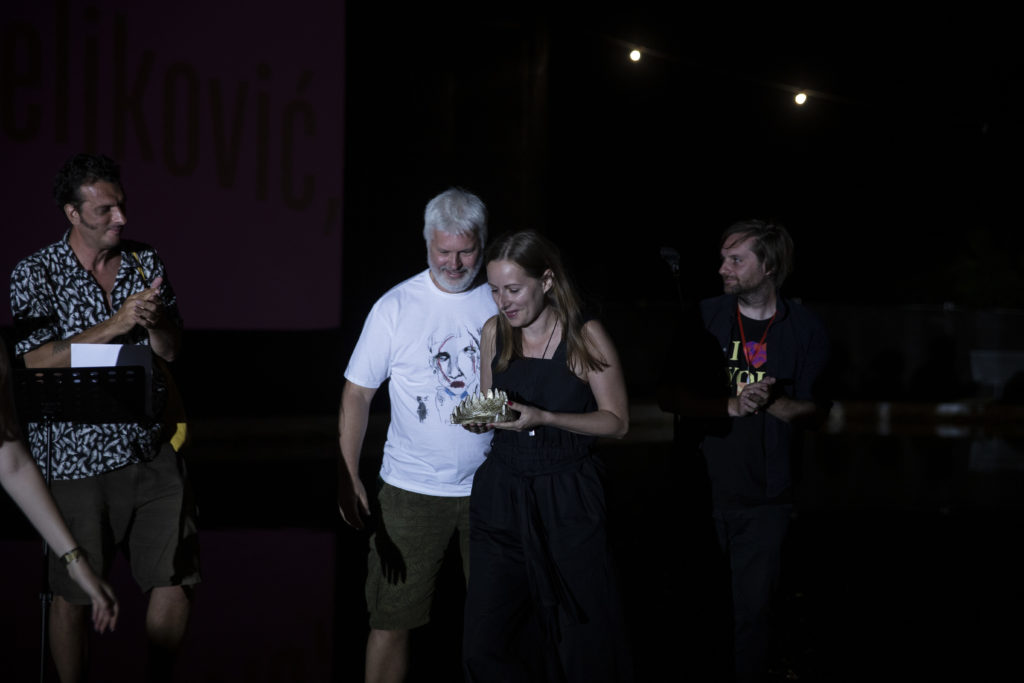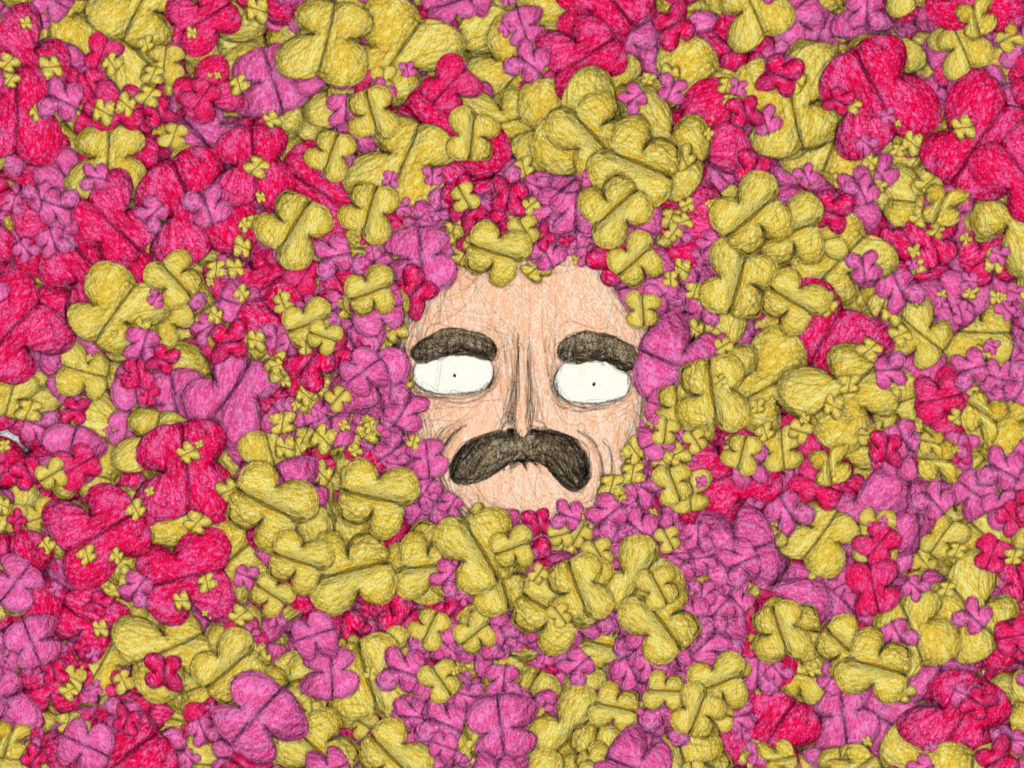Dritan Dragusha: International Competition III

“Mr. Mare”
Interpreting works of art is always a challenge, because the variety they carry express the complexity of the art itself. The animated film “Mr. Mare” by director Luca Tóth is of the same nature. The film begins with the development of a very small body within the body of a large man, so at first the film seems somewhat vague, however, as the film develops, it becomes clearer. This film is traumatic both in its realization and in its content, and in addition it also has a biblical metaphorical line in it. At one point the small body emerges from the human chest and begins to explore the environment in which it lives. The environment is dirty because the care is minimal and so this small invisible body starts to maintain the house, clean, waters the flowers, etc. It cleans constantly, while the man is someone who constantly goes out and has fun and when he comes home he makes a mess of lies in bed. The metaphor of this film is that we tend to neglect the people who care for us, even to the point of not noticing them. We take everything around us for granted, but in reality, is it really someone we constantly ignore, such as the one who cares for us, makes our lives easier, but we act as if they have a duty to take care of us. We do not give love to these beings, in fact we are a disappointment for them, just like in the movie “Mr. Mare”, when in the end this small body comes out of the house and we understand that only when we notice that the flowers in the pots have dried up.
“Mémorable”
One of the biggest crises of this time or of the digital age is loneliness, especially in the elderly. Director Bruno Collet addresses this exact topic in the film “Mémorable”, where the main character, Louis, a painter, suffers from forgetfulness. Louis is synonymous with a desperate man in the face of such a neglected reality. As a painter in the digital age, a harsh era that does not leave much space, Louis is also looking for the time that has passed. Since he suffers from Alzheimer’s disease, Louis does not know exactly whether he lives with his wife Michelle, or those are his visions of a madman that reminisces the past. The past was simpler, less complex, and as such less stressful for Louis, so he begins to label all the new things around him at home that contain the names of that time. However, in an instant, these labels scatter in the air, making a large pile of pieces of forgotten names, which symbolize pieces of memories of an elderly man who permanently struggles with forgetfulness. In a way, this film shows that people suffering from Alzheimer’s disease are not worried about what tomorrow will be like, but are afraid of forgetting what yesterday was like.
“Story”
The film “Story” by director Jolanta Bańkoëska, highlights the biggest current problem, the loneliness caused by digital addiction. Today the virtual world also known as a social communication network, or social media, has in fact taken the form of socialization. People are gripped by loneliness just like the characters in this movie. Everyone lives in their own “shell” which they did not choose themselves, but which was predetermined by circumstances. Immersed in the virtual but never embodied with it, the characters of the movie “Story” are almost constantly on the run, but desperately without final success. Everyone is immersed in their phone and we get the impression that everyone is looking for something, like a person searching a lost thing, and most likely the characters of this movie, who remind us of our phones, show us that we are also unconsciously looking for a past which can never return.
“The Box”
The character Chloé seems to personify the director Marie-Pierre Hauwelle in the movie “The Box”. This film introduces us to a timid girl (Chloé), who as a quick start will set off for the streets. It features a girl who at first glance seems preoccupied with being punctual. However, from the beginning, her punctual plan takes an unforeseen turn, because in the mailbox, she finds a box that is dedicated to her, but it is not said who sent it. And here the story begins and takes us with it. When she starts to guess who might have sent the box, the viewer would very easily solve the puzzle because they would open the box and this problem would end. However, Chloé does not open the box because she is gripped by the unknown’s anxiety. The fear of what might be inside begins and becomes so unbearable that along the way Chloé tries to leave the box, however, someone always reminds her of it, until the moment when she leaves it on the platform and gets inside the train. Shocked, Chloé watches the mess on the platform from the train, which may all be a vision of a person suffering from anxiety. In addition, the film shows the inhuman spirit, where people do not have a normal social communication, but it seems as if everyone lives in their own world, which in fact seems to be the case, because it is really a world in which we are placed and this for people become more insecure, deepening separation and increasing anxiety.
“Bela”
The film “Bela” by Australian director Nick Simpson is based on the biography of Bela Julesz, Hungary’s most famous visual neuroscientist, which produces the depressive life of two people in isolation. This film is about the lives of two isolated people. The film lasts four and a half minutes and presents quite well the gloom of isolation. Whilst isolated the two characters develop a life where everything is concentrated in that space and being a depressed life, the characters talk about the possibility of escaping from Hungary to America. This entire escape story outlines through a book “Magic eye”, which seems more as a product of the monotony of isolation. If we contextualize it, then today people live on isolated islands, which are often not only real, but also imaginary.

Dritan Dragusha biography:
Dritan Dragusha holds a degree in philosophy from the University of Prishtina. Dritan is focused on cultural theory and also on literature, cinema and music. He also deals with journalism. He is a regular columnist on the online platform “sbunker.net”. He was also a teacher of philosophy and ethics at “The British School Kosova”. Co-author of the Cultural television project “Filozofema”, on Radio Television of Kosovo. Currently Dritani is the author and moderator of the show “Prizma”, on T7 television.
-The opinions, findings, and conclusions or recommendations expressed herein are those of the Author(s) and do not necessarily reflect those of the Anibar Festival





